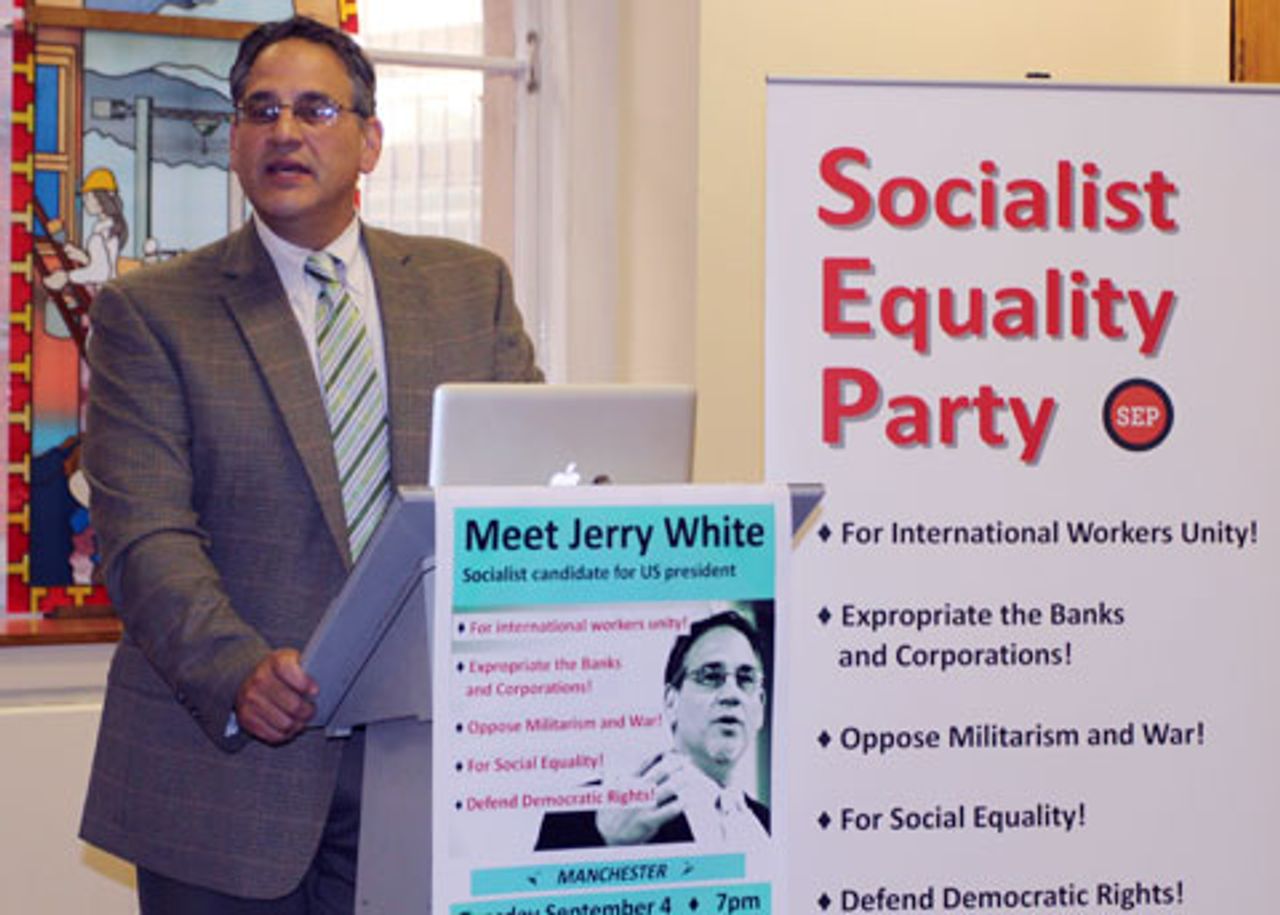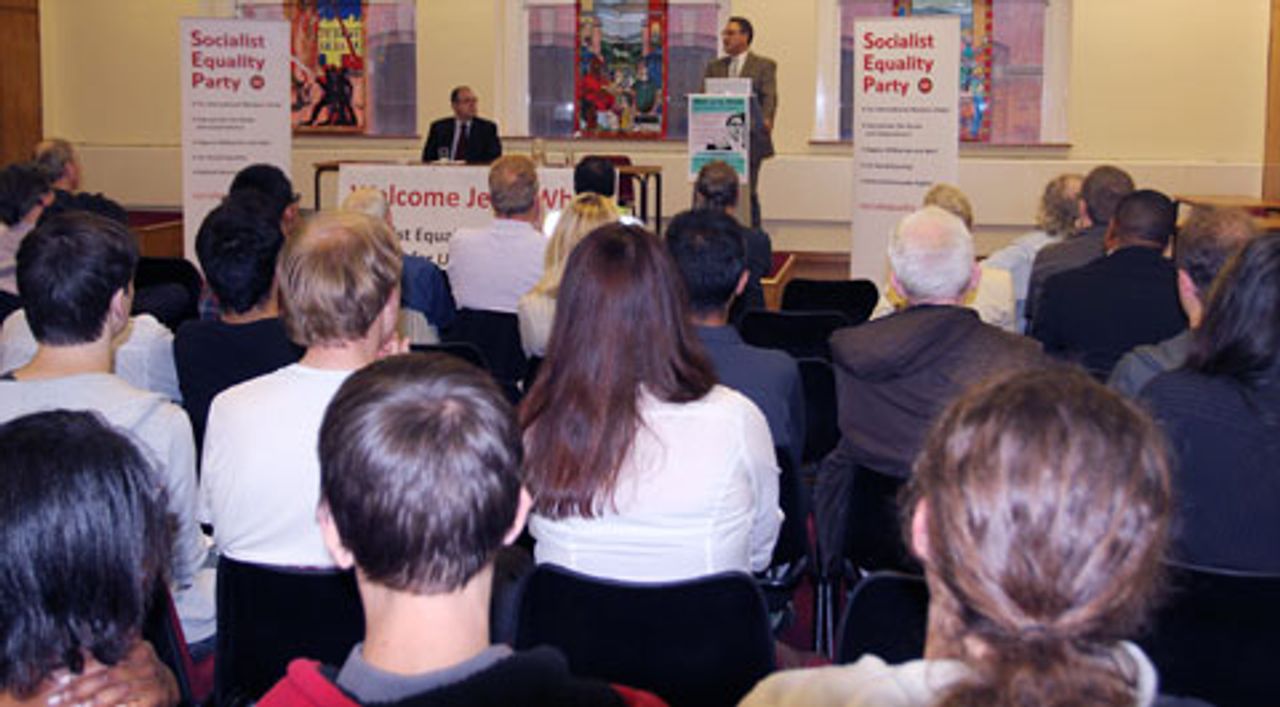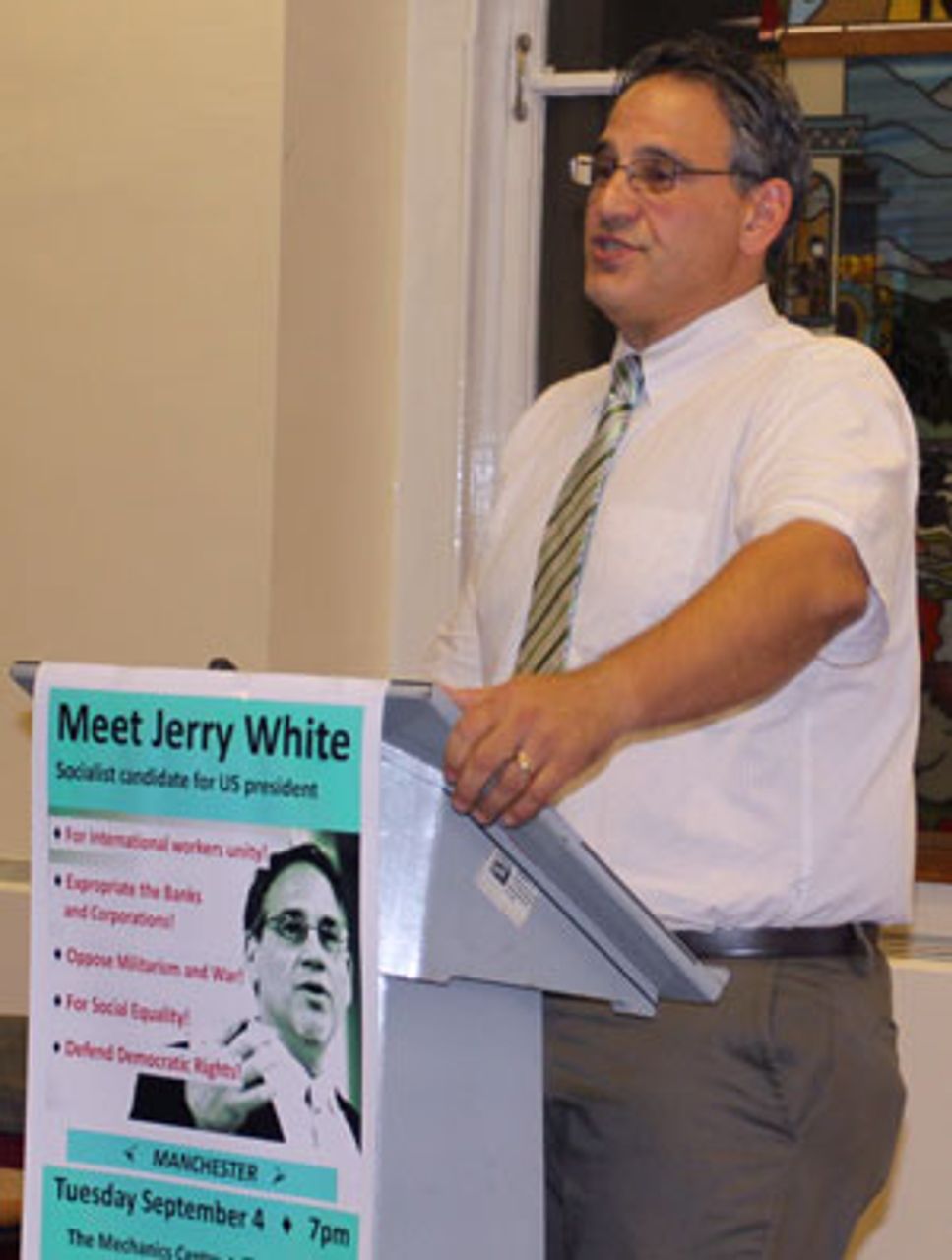 Jerry White speaking at the Manchester public meeting
Jerry White speaking at the Manchester public meetingJerry White, the Socialist Equality Party candidate in November’s US presidential elections has arrived in England on the second leg of his international tour.
He journeyed from Sri Lanka, where he had addressed well-attended meetings in Colombo, Kegalla and Galle and held discussions with rubber workers on the Ambanpitiya Estate in Kegalla.
White’s first meeting in England was held Tuesday evening in Manchester, the city where Friedrich Engels wrote The Condition of the Working Class in England in 1844. The author described the work with characteristic modesty, as “one of the phases of ...[the] embryonic development” of modern international socialism as a science, “chiefly and almost exclusively through the efforts of Marx” [Preface to the English Edition,1892].
 The meeting in Manchester
The meeting in ManchesterThe meeting at the Mechanics Institute was attended by more than 70 people, and White was warmly received. Among the audience were workers, students, unemployed and young people from towns and cities across the north of England, including immigrants from Africa,Turkey and China. Following White’s presentation, many wide-ranging questions were asked on the programme and perspective of the Socialist Equality Party in the US and in Britain. Many stayed behind after the close of the meeting for further discussion with White.
A full report of the meeting will appear on the World Socialist Web Site tomorrow.
White will speak in London on Thursday before moving onto Germany.
Interviewed by the Manchester Evening News on the eve of the meeting, White referred to the “deep and rich history of socialism” in the city.
 White addressing the meeting
White addressing the meetingHe was conducting the international tour, he explained, because “American workers face the same problems as those in this country and around the world.”
“These problems cannot be resolved by appealing to the powers that be and appealing to their conscience. They require revolutionary answers.”
White last spoke in England in October 2008 in the run-up to the US presidential elections that year, when he was also running for president.
At the time, he noted that the bursting of the US housing bubble in 2006 led inexorably on to the so-called credit crunch of 2007. This was no temporary aberration, but the first stage of a systemic breakdown of world capitalism. By September 2008 Lehman Brothers filed for bankruptcy, and the world markets came close to complete collapse.
This was the start of a shift to the left in the consciousness of broad masses of working people, who rightly regarded the crisis as the outcome of the pro-business policies pursued by all political parties alike over the preceding decades.
Under these conditions, the likely election of Barack Obama to the White House was being promoted by the powers-that-be internationally, along with their apologists in the pseudo-left groups, as a complete break with the Bush years. Under the mantra of “change”, the illusion was consciously promoted that the election of an African American President would see an end to the years of right-wing economics and an aggressive and predatory foreign policy.
It was such notions that White had warned against during his 2008 visit, explaining that Obama would serve the US ruling elite just as slavishly as Bush before him because the dividing fault line in society was that of class, not race.
Four years on, this has become clear to many. Obama carried out massive bailouts of Wall Street, enforced huge cuts in the pay of auto workers, expanded US war abroad and intensified the attack on democratic rights.
The impact of these events was apparent in the campaign for the meeting, during which many workers and youth expressed the view that there was no difference between Bush and Obama, Republicans and Democrats.
In contrast, the SEP campaign drew a hostile response from Labour Party supporters and other apologists for Obama, with one official at Salford City Council complaining that the SEP’s presidential campaign was “sabotaging” his reelection.
